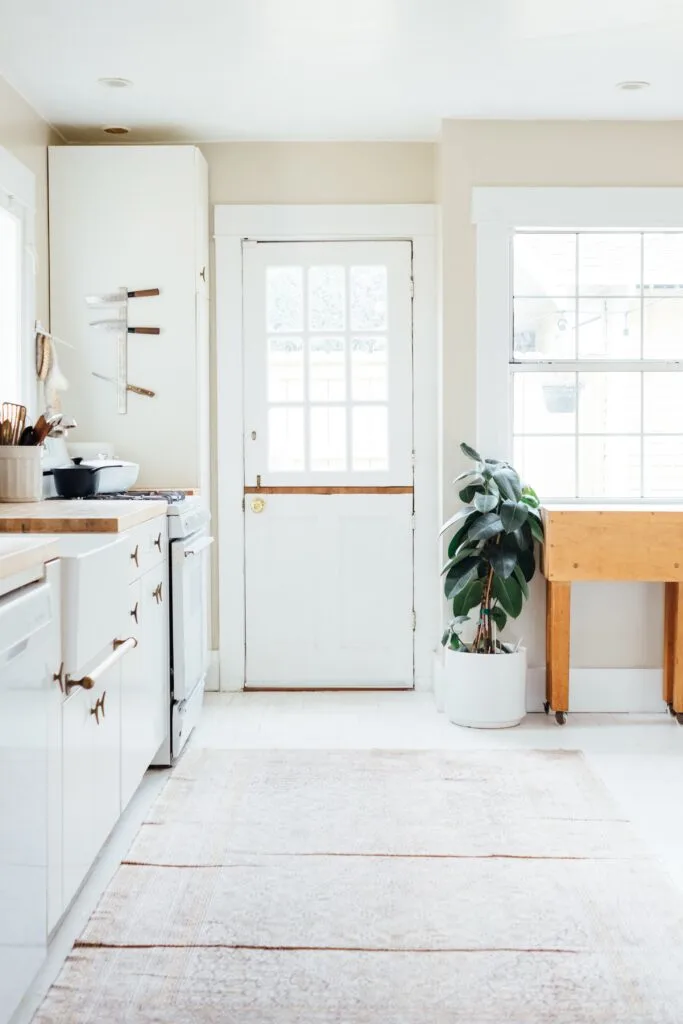Is moving back home at 30 a normal experience? What is being referred to now as “boomerang kids” is the millennial (currently 30-aged) generation moving back into their parents’ homes. Let’s explore why this might be the case.
Let’s start out by saying that most people moving back home with their parents didn’t intend for things to work out this way. High school you likely did not envision your 30-year-old self still sitting in the same bed. And many of them are doing it for as a temporary solution to an otherwise expensive problem.
And let’s not forget that during the pandemic a lot of college campuses closed down leaving many college students without the independence they craved and back under their parents roof.
Is moving back home at 30 normal?
In the United States, 18% of households are multi-generational according to Pew Research Center, meaning that almost 20% of households here in the United States have people of multiple generations living inside of their four walls. Based on this research, it’s not an uncommon experience.
It might not be an experience that everyone has, but I would agree just based on that stat that is at least somewhat normal. In the very least you should not feel like an outcast for sharing a home with your parents. Multigenerational living is not uncommon.
It’s likely at least once person in your similarly-aged friend group shares a roof with their parents. The last year (or several) have been very strange for most of us, including those with college degrees who thought we moved out of our family home for the last time years ago.

What’s Not Ideal About Living At Home In Your 30s
A brief conversation with several people in my friend group who have lived at home throughout their 20s and 30s revealed a few similar sentiments when it comes to living in their childhood home.
The most popular complaint seems to be that living at home can stunt your independence. It can also make it difficult to lead the life you want to live when you have to answer to someone else, even if that person is your parent.
Another commonality I noticed was that people who live at home in their 30s often feel like they’re not able to fully live their life because they have to be careful not to make too much noise, or be too disruptive.
I also heard from quite a few people that living at home can interfere with your love life. When you’re in your 30s and single (or even if you’re in a relationship), the last thing you want is your parents constantly being around and asking questions about your love life.
Some people also find that living at home can make it difficult to make new friends, because they’re not out in the world socializing as much as they would be if they had their own place.
Finally, I heard from several people that living at home in your 30s can make you feel like a teenager again. This is especially true if you have strict parents who are constantly asking you where you’re going and what you’re doing.
College students as often move home while looking for a new job or trying to pay off student debt. You’ll be able to save much money by spending a few more months under your parents roof while paying off student debt.
It can also take a toll on your mental health to live at home in your 30s. This is because you can feel like you’re not living your life to the fullest and like you’re not in control of your own life. Consider seeking therapy during this time or making sure you have a plan to actually move out when the time comes.
All of these complaints are valid, and they’re all things that can make living at home in your 30s less than ideal.
However, there are also some upsides to living at home in your 30s that are worth considering.

The Advantages Of Living At Home In Your 30s
One of the biggest advantages of living at home in your 30s is that it’s a lot cheaper than renting an apartment or buying a house. The housing market and high rents are leading many twenty-somethings and thirty-somethings to seek refuge under their parents’ roof.
If you’re able to save money by living at home, you can use that money to pay off debt, start investing, or save for a down payment on a house.
Another advantage of living at home is that it gives you a chance to take a break from the real world and live a relatively stress-free life.
If you’ve been working hard for a few years and you’re starting to feel burnt out, living at home can give you a chance to relax and recharge.
Living at home can also give you a chance to save up for a big purchase, like a car or a down payment on a house.
Finally, living at home can give you an opportunity to spend more time with your family. If you have young children, this can be a great way to bond with them and watch them grow up.
So, while there are some disadvantages to living at home in your 30s, there are also some advantages. It’s up to you to decide whether the pros or the cons are more important to you.
If you’re considering moving back home, talk to your parents about your concerns and see if they’re open to compromise.
For example, maybe you can agree to only live at home for a year, or maybe you can agree to pay rent. The important thing is to communicate openly and come to an agreement that works for both of you.

Reasons People Move Home In Their 30s
There are a variety of reasons why people in their 30s might choose to move back to their parents’ home.
Finances
Perhaps the main reason people move back in with their parents is finances. Some people do it because they can’t afford to live on their own, either because they’re struggling to find a job or because they have a lot of debt.
Living at home can also give you a chance to save up for a big purchase, like a car or a down payment on for your own homes. Even saving a little money for a lot of people can make a big difference.
Staying with your parents for even a year or two can help thirty-somethings make a huge dent in their debt or down payment when saving for a house. Things are expensive and inflation isn’t helping. Coupled with student loans, consumer debt, being underpaid, and more, a lot of a person’s monthly paycheck gets taken up by rent.
Familial Bonds
Others move home because they want to be closer to their family, or because they need to take a break from the real world.
Living at home can give you an opportunity to spend more time with your family and quality time. If you have younger siblings who are still living at home too, this can be a great way to bond with them and watch them grow up.
Hitting Reset
If you’ve been working hard for a few years and you’re starting to feel burnt out, living at home can give you a chance to relax and recharge.
A lot of millennials are simply tired and overwhelmed. Many in this generation have been pushed to the point of burnout over and over again. From working long hours to being constantly connected to the internet and social media, it’s no wonder that so many people are struggling to cope. Even millennials who make a lot of money experience burnout and have a hard time.
For some people, moving back home is a way of hitting the reset button and taking a break from the rat race. It can be a chance to reassess your priorities, rejuvenate yourself, and figure out what you really want in life.
Being Laid Off
This happened to several people I know during and because of the pandemic. They simply lost their source of income and instead of rushing to find something new, they moved in with their parents to cut expenses.
It was unfortunate at the time but actually turned out to be a blessing in disguise. Otherwise, they would have hardly seen their parents during the pandemic because of restrictions and lockdowns. This would have been sacred time lost together and potential memories wasted while isolated from each other.
Child Care
If you have children of your own you might consider moving home for the child care your parents could provide. This can be especially helpful if you are going through a hard time and need to get back on your feet.
Caregiving
Another big overlooked reason people in their 30s move home is caregiving for a parents. This is usually an unplanned circumstance, but many young people are finding themselves in the position of being a primary caregiver for an elderly parent.
This can be for a variety of reasons: the death of a spouse, declining health, or even just because they live far away from other family members who can help.
This is a big responsibility, and it’s not one that should be taken lightly. If you’re considering moving back home to care for a parent, make sure you talk to them about it first and that they’re on board with the idea.
There are a lot of things to consider before making the decision to move back home in your 30, but whatever your reason, it is not a wrong one.

What Parents Have To Say About Their Adult Children Moving Home
Before moving back home, consider how your parents will feel. It’s not just young people who are struggling these days. Many parents are finding themselves in tough financial situations as well. So when their adult children move back home, it can be a bit of a relief.
Some parents are happy, relieved even. Especially if they have been seeing their adult child struggle financially to gain independent footing. Having them back home for a while can help ease some anxiety.
And on the other hand, some parents could feel like it is an honor to be able to offer your adult child a place to stay while they can do something like pursue higher education like graduate school or save up for a down payment for their own place.
Of course, not all parents are thrilled about their adult children moving back home. Some feel like they’ve failed as parents if their children can’t make it on their own.
They might be disappointed when your adult child moved back in with you. Considering they thought they’d be more independent by now can make you feel like you’ve done something wrong as parent.
On the other hand, they might feel embarrassed when your child moves back home. They could be feeling like a failure and find it hard to accept.
Before moving back in with your parents, have a conversation with them that is open and honest. This is a tough situation all around, for both parents and child. Don’t be upset if they say no.

If you’re struggling to deal with your child moving back home, here are a few things to keep in mind:
However you feel about your children moving back home, it is important to remember that this is their decision and not yours. They are adults now and capable of making their own choices.
If they ask to move back in, you can say no. You do not have to open your home to them. This doesn’t make you a bad parent, just like opening your door to them makes you a good parent. It’s more a situational thing that should work for everyone involved.
If you’re considering moving back home, talk to your parents about it first. See how they feel about the idea and what their expectations are. That way, you can avoid any potential conflict down the road.
One friend I spoke to said that living with her mom throughout the pandemic was a great experience. Their biggest downside was that her mom knew that it wasn’t her desire to live at home but they were truly both glad for each other’s company during such a stressful time.
Here are a few things to keep in mind:
1. Your child is an adult now and capable of making their own decisions.
2. This is a difficult time for everyone, and your child is likely doing the best they can.
3. Talk to your child about their decision and why they feel it is the best thing for them.
4. Offer support and assistance where you can, but respect their decision and space.
5. Remember that this is only temporary, and things will eventually get back to normal.
Are People Judging You?
If you’re considering moving back home, you might be worried about what other people will think. Will they judge you? Will they think you’re a failure?
The truth is, people will judge you no matter what you do. So don’t let their opinion stop you from doing what’s best for you.
People might have an opinion about it, yes, but they are not in your shoes or in your situation. Do what is right for you. Tough times can hit anyone at any time. And you won’t regret spending extra time with people you love, even if only temporarily.
How To Set Ground Rules For Moving Back Home at 30
If you’ve decided to move back home, it’s important to set some ground rules. After all, you’re not a kid anymore and your parents are not obligated to put up with your antics.
Here are a few ground rules to consider:
1. Set a Move-Out Date: One of the most important things to do is to set a move-out date. This way, both you and your parents will know that it’s only temporary and that you’re not planning on moving back home permanently.
2. Pay Rent: Just because you’re living at home doesn’t mean you should get a free ride. If you can afford it, offer to pay rent. This will show your parents that you’re serious about being an adult and that you’re willing to contribute to the household.
3. Do Your Chores: You should also be prepared to do your fair share of the chores. Just because you’re living at home doesn’t mean your parents should have to do all the work. So pitch in and help out around the house.
4. Be Respectful: It’s important to be respectful of your parents and their rules. They are letting you live in their home, so show them some respect. Follow their rules and don’t do anything to upset them.
5. Be Grateful: Finally, be grateful for the opportunity to live at home. Not everyone is so lucky. So even if it’s not your ideal situation, be thankful for what you have.
6. Set a Schedule: One thing that helped my friend was setting a schedule. She knew when she had to be home, when she could go out, and when it was time for bed. This helped her feel more like an adult while still living at home.
7. Have Your Own Space: Another thing that can help is to have your own space. If you can, set up a room in the basement, spare room, or in the attic. This way, you’ll have your own space to retreat to when you need some alone time.
8. Know What To Share: When it comes to parent-child relationship, when you are living together as adults, it can be hard to know what to share and what not to. Set boundaries around work, your social life, and more while being respectful of your parents space and schedules as well.
9. Set House Rules: This is for both of you to consider and do. You’re not a child anymore but sharing space with your parents is intruding on their once empty nest. Consider that they have needs too and respect them like a roommate as well as being your parents by setting house rules.
Moving back home at 30 can be a great way to save money and spend more time with your family. Just be sure to set some ground rules first. That way, everyone will know what to expect and there won’t be any surprises down the road.

Moving Back Home at 30 Is a Temporary Solution
No matter what your reason for moving home is, it’s important to remember that it’s not a permanent solution. While there are some disadvantages to living at home in your 30s, there are also some advantages. It’s ultimately up to each person to decide what’s best for them.
If you’re considering moving back home, make sure you have a plan in place for how long you’ll stay and what you’ll do next. That way, you can make the most of your situation and avoid any potential pitfalls.
Talk to your family about it and come up with a plan that works for everyone. It’s not a bad thing to move into your parent’s house. Multigenerational homes are not uncommon, and is something we’re seeing more and more of with older adults.
Whatever you do, don’t give up on your dreams. Just because you’re living at home right now doesn’t mean you always will. Times are tough, but they won’t last forever. You’ll get through this and come out the other side stronger than ever. Moving back home at 30 is just a temporary solution. It’s not the end of the world.
More Posts About Life In Your 30s
- Best 225+ Turning 30 Phrases, Wishes, Messages for a 30th Birthday
- 10 Things To Look Forward To In Your 30s
- 10 Best Blogs To Read In Your 30s
- 30 Books to Read In Your 30s
- 50 Inspiring Quotes For Your 30s
- The Ultimate Bucket List For Your 30s
- Turning 30 Poems: 30 Poems For 30th Birthday Wishes
- Turning 30 Humor and Turning 30 Jokes That Will Make You Laugh
- Cheers to 30 Years: How I’m Approaching My Thirties
- How To Deal With Overbearing Parents at 30
- 30th Birthday Party Themes: 36 Ideas To Celebrate in Style
- Gifts For Women In Their 30s
- How To Get My Life Together At 30
- How To Reinvent Yourself At 30
- 50 Movies Every Woman Should Watch In Her 30s
- 200+ Smile Quotes for Instagram to Inspire You
- 30 Great Gifts For Someone Turning 30
- How To Dress In Your 30s: 21 Must-Have Style Pieces
- Being In Your 30s: Everything You Need To Know
- 40 Hairstyles For Women In Their 30s
- Being Broke at 30: What To Do About It
- Starting Over In Your 30s: Where To Go From Here
